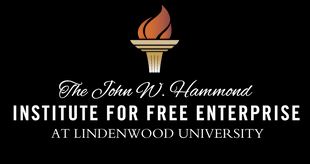Document Type
Article
Publication Title
Center for Economics and the Environment: Policy Series
Abstract
Aldo Leopold, one of the nation’s greatest leaders in the early conservation movement, had a vision of a nation of citizen stewards. He eloquently imagined that each of us in our own backyards and communities would serve as stewards of our environment. Environmental progress, he opined, ultimately resides in the actions taken by each and every one of us.
Earth Day thirty years ago turned environmental aspirations toward Washington, D.C. In the wake of several notable events—the oil spill in Santa Barbara (my backyard), the Cuyahoga River in the Cleveland area catching fi re, and others—sent a wake up call that all was not right with our protection of the environment. That wake up call created a yearning for action, in particular, a demand that the federal government become more involved.
The result was an unfurling of the nation’s major environmental statutes in the 1970s and 1980s – the Clean Air Act, the Clean Water Act, the Safe Drinking Water Act, the Resource Conservation and Recovery Act, the Endangered Species Act, and many others. Many of these efforts have resulted in a better environment. Our air is cleaner, our water is purer, and eagles are soaring once again.
But these statutes also resulted in high levels of conflict. Sometimes they produced unintended consequences, solving one problem while creating other problems. In some instances, these directives resulted in costs that were much higher than necessary. Once we turned to Washington, federal prescriptions were not always perfectly suited to local circumstances.
While our environmental hopes were pinned on Washington, another movement also was developing, albeit largely unnoticed. There was an upwelling of citizen stewardship in the vein that Aldo Leopold envisioned. Individuals working alone and together, on farms and in factories, in neighborhoods and backyards began to take actions to improve their local environments. At the dawn of the 21st century, Aldo Leopold’s vision is gaining momentum and holds unlimited possibilities.
At the Department of Interior, we are trying to shine a light on these local opportunities, and we are seeking cooperative ways to facilitate them. Let me give you a flavor for this trend in an effort to anchor in your minds that these are not isolated incidents but are spread across this country. They offer us an alternative upon which to build our environmental future – a foundation of cooperation rather than conflict.
Publication Date
3-2004
Creative Commons License

This work is licensed under a Creative Commons Attribution-NonCommercial-No Derivative Works 4.0 International License.
Recommended Citation
Scarlett, Lynn, "Moving Beyond Conflict: Private Stewardship and Conservation Partnerships" (2004). Center for Applied Economics. 28.
https://digitalcommons.lindenwood.edu/cee/28


